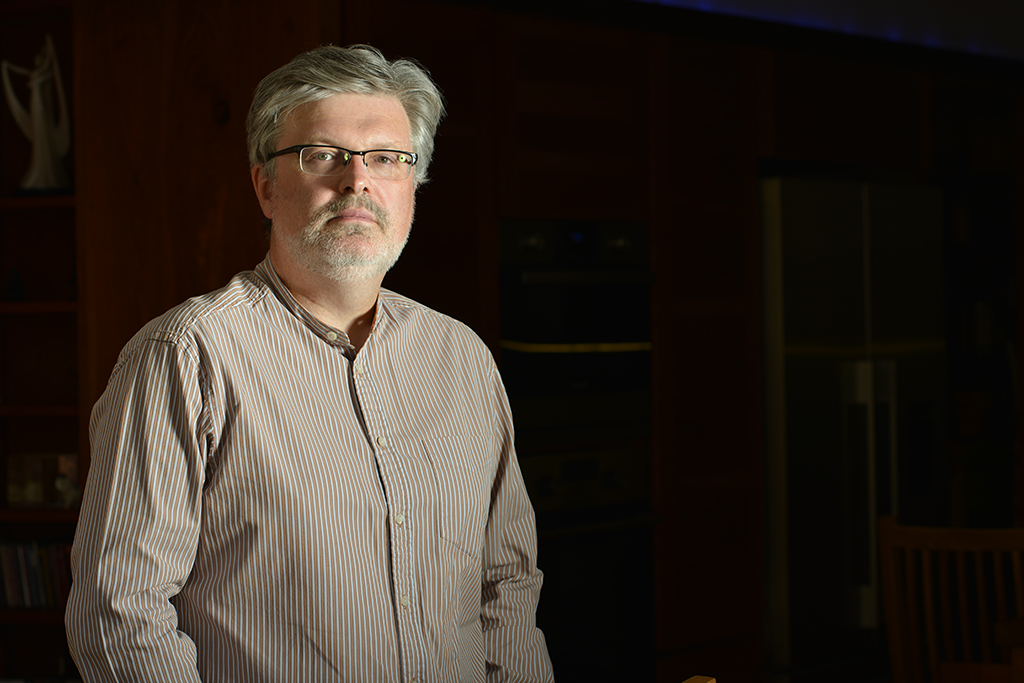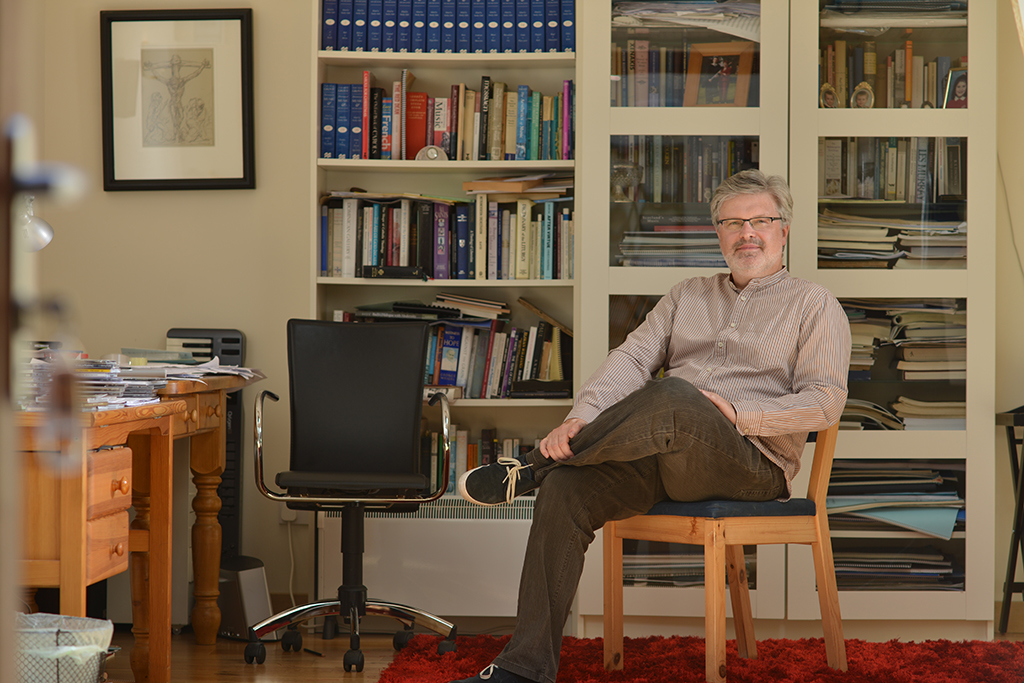
Songs in the key of life for Sir James MacMillan
He might be Scotland’s pre-eminent composer, but Sir James MacMillan is just as happy writing music for school children
James – knighted in 2015 – is rarely short of an opinion. Although his proper job is composer and conductor, any day of the week he might be on Twitter discussing football, liturgical music or international politics. Sometimes he posts the words of Ivor Cutler songs, or retweets the
thoughts of his grown-up children, of whom he is clearly enormously proud.
It turns out that these two are connected. MacMillan’s strong opinions have in the past led him into more ding-dongs than a professional campanologist.
In this interview with Scottish Field, conducted in 2014 at the time of the Scottish independence referendum and in the run-up to appearing at the Cumnock Tryst, he said: ‘Artists who intervened in the debate could be hit badly, people threatened to boycott them, not buy their books, not go to their concerts,’ he said. ‘I could cope with that personally but I was not prepared to let all the people that I’ve worked up into a state of frenzy face that. If the Tryst was going to be damaged because I’m a controversialist – well, I was not going to let that happen.’
How this worked in practice was that his wife, Lynne, administered what MacMillan calls ‘a three-line whip’. As the chairman of the Tryst board, she had a vested interest in making sure he uppressed his urge to start a fight in an empty room. It turns out
that it was not as difficult as someone familiar with MacMillan’s track record of getting into trouble (over his mass for the Pope’s Scottish visit in 2010, for example) might imagine.
The Cumnock Tryst has, he explains, replaced these other pre occupations. ‘I’ve learned to step away. I’m in the process of maturing,’ he says with an almost-straight face. He’s 55. ‘I’m trying to put that behind me. I get obsessions about things and some are fraught and anxious, such as politics or the sectarian thing. Now I’m glad other people are running with them, but for me they have died. This has taken off.’
He is not kidding. The inaugural Cumnock Tryst programme included performances by The Sixteen, Nicola Benedetti and Cumnock-born violinist Ian Peaston.
‘I’ve been thinking about establishing a small festival for years,’ he explained, ‘but I couldn’t work out where it should be.’ Then, in 2007, Prince Charles put together a consortium to buy Dumfries House (which is, confusingly, in East Ayrshire) for the nation. ‘A light went on. I’m from Cumnock originally, and I’ve still got relatives there. I remember what it was like to be a young musician there.’

Sir James MacMillan helped found the Cumnock Trust
By MacMillan’s account, the East Ayrshire of the 1960s and 1970s was a musically rich and diverse place to grow up. ‘People are astonished that I’m doing this festival in Cumnock. They think it’s an area of multiple deprivation, which it is, but it had a teeming life. I remember hearing the Berlin Octet at the Cumnock Music Club. There were all the local church choirs, the Kyle Choral Union, Auchinleck Amateur Operatics.
‘I’m a musician because of the people I knew back then: parents, family, friends, teachers. We all made music in one way or another.’
That is the tradition on which he hopes to build the Cumnock Tryst. As brass and choral music have been what Macmillan calls ‘the two big musical strands for generations’, these will be central to the programme.
He played trumpet and coronet as a boy and remembers his grandfather, a miner and euphonium player, taking him to brass band rehearsals at Dalmellington. As well as bringing world-class choirs such as The Sixteen to the festival, he wants to grow the local talent base.
He already had the pupils of Greenmill Primary – which operates its own version of the Venezuelan El Sistema, with every child from primary four upwards playing an instrument in the school orchestra – on side. Some of them accompanied him to London to promote the event at the House of Lords with Lord Foulkes of Cumnock. They performed a piece MacMillan had written for them, alongside percussionist Colin This, MacMillan makes clear, is just the beginning.
He said: ‘I think Cumnock, the Doune valley and East Ayrshire could be a real beacon for music. They keep winning national prizes, and it has been that way since my day and before. It’s about whipping the embers back into life in new ways.’
Writing proper, unpatronising yet accessible music – whether it’s for his own church congregation or children who have just taken up the violin – has always been important to MacMillan. A version of the piece he wrote for the Greenmill Primary pupils was broadcast on Radio 3. This time it was played by four members of the Scottish Chamber Orchestra.
‘I was trying to find something that beginner string players would be able to do and feel completely involved, challenged and part of
the fabric of a complicated, adult piece of music,’ he explains.

Sir James MacMillan at home in Glasgow (Photo: Angus Blackburn)
This is, he insists, keeping up an ongoing tradition of composers who saw them selves as part of a wider musical community. He cites Benjamin Britten’s children’s operas and Peter Maxwell Davies writing for Kirkwall school pupils. ‘Both Birtwhistle and Tippett
taught kids when they were younger; Vaughn Williams and Holst were very much involved in community music-making.
‘It seems to be a constant with the British composer, an integral part of their work. They don’t dumb down when they write for amateurs, otherwise we wouldn’t have the great British amateur choruses singing at such a high level.’
As well as the Cumnock Tryst, MacMillan continues with a non-stop schedule of composing and conducting. He is at the stage of his career when he is doing things again: writing his second percussion concerto (the first was for Evelyn Glennie; this one is for Colin Currie); his second Passion (it’s St Luke’s turn). N
‘I find conducting invigorating,’ he says. ‘It helps me in my own compositions. I feel very on-side with a composer, whether living or dead, as if I’m batting for the same side. I have a real burning desire to bring out the best in it.’
The 2019 Cumnock Tryst runs from 3 to 6 October.
Click HERE for more details. www.thecumnocktryst.com
This feature was originally published in 2014.
TAGS

